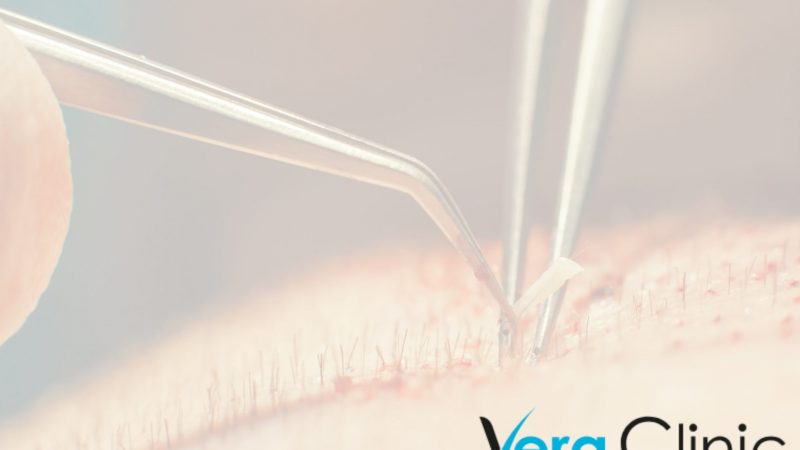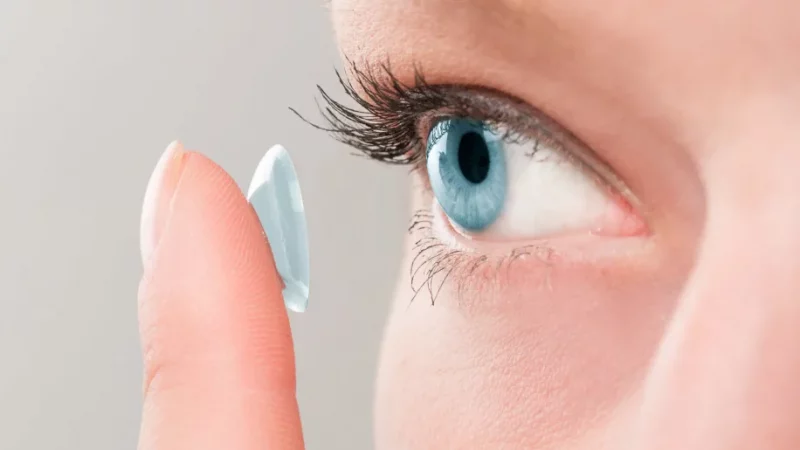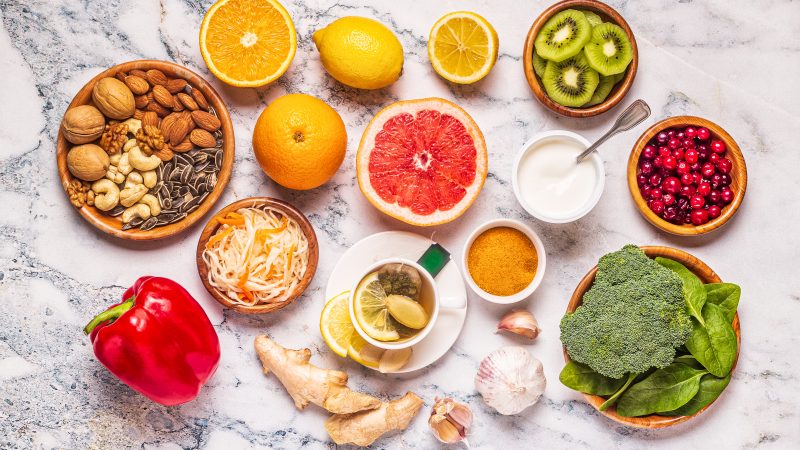Top Benefits Of Collagen
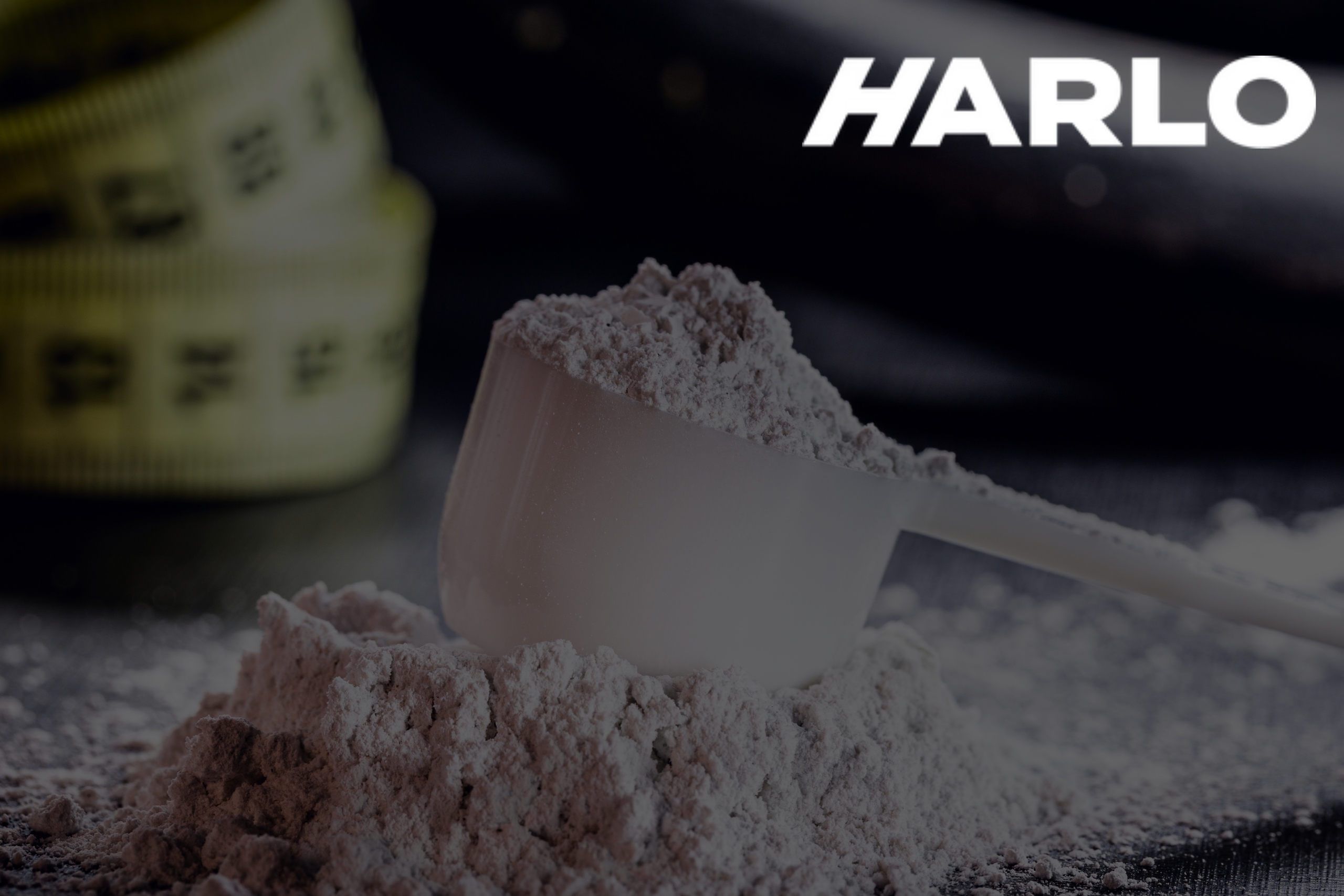
In order to keep our bodies healthy generally, collagen, a protein, is essential. It makes up about 30% of the body’s overall protein mass, making it the most common protein. Collagen is a main building block of connective tissues, like skin, tendons, ligaments, and bones. It gives these tissues power and shape.
We can’t say enough good things about collagen for our health. It gives our skin strength and flexibility and also helps cuts heal and cells grow back. In addition, collagen helps keep our joints healthy and flexible, which makes it an important part of avoiding joint diseases like arthritis. It also helps our bones stay healthy by making them stronger and denser.
Collagen is good for our internal organs in addition to our physical health. It makes a shield around the liver, heart, and other sensitive organs, keeping them safe from damage from the outside. Furthermore, collagen helps our blood vessels work smoothly, which in turn helps keep our blood pressure normal.
Because we get older, our bodies make less collagen, which makes wrinkles and fine lines show up and makes bones and joints weaker. As a result, it is very important to make sure we get enough collagen through food or vitamins to keep our health in good shape.
Types of Collagen
Collagen, which makes up about 30% of the body’s total protein makeup, is an essential protein that is common in humans. Collagen comes in a number of different types, each with its own structure, function, and location in different organs.
The skin, bones, muscles, and joints all have type I collagen, which is the most common type. It gives these muscles strength and support, which helps keep their structure together. Type II collagen is mostly found in cartilage and is very important for keeping joints healthy because it cushions and absorbs shock.
Type III collagen is often found with type I collagen. It can be found in many organs, like the uterus, blood vessels, and intestines. It helps keep these organs’ structures in good shape and gives them flexibility.
Part of the basement barrier in organs like the skin and kidneys is made up of type IV collagen. It filters things out and helps the cells next to it stay stable.
Smaller amounts of type V collagen are found in different tissues, and it is often linked to type I collagen. It helps control how type I collagen fibres are put together and arranged.
In general, collagen is very important for keeping the body’s cells and systems healthy and working properly. To fully understand the complexities of connective tissue health and general body well-being, it is important to know the different types of collagen and what they do.
Collagen Production
The body’s collagen production is a complicated process with many steps. Collagen is a protein that is mainly made by fibroblasts, which are specialised cells. These fibroblasts can be found in the skin, bones, muscles, and ligaments, among other places in the body.
The process of making collagen starts with the creation of amino acids, which are proteins’ building blocks. Then, these amino acids are linked together in a certain order to make a polypeptide, which is a long chain. Inside the cell, this protein chain changes in a number of ways, such as adding different chemical groups, which turns it into a mature collagen molecule.
A lot of different things can change how much collagen the body makes. Age is a big one because collagen production usually goes down as you get older. UV (ultraviolet) light from the sun can also stop the production of collagen. Smoking, bad diet, changes in hormones, and some medical conditions are some other things that can slow down collagen production.
It is important to live a healthy life to help your body make collagen. This means eating a healthy, well-balanced diet that is high in protein, vitamin C, and other nutrients that are needed to make collagen. It’s also important to keep your skin safe from too much sun by using sunscreen and wearing clothes that protect you.
Skin Health
In order to keep the skin flexible and hydrated, collagen is essential. It is a protein that gives different parts of our bodies, like the skin, their shape. When we get older, our bodies make less collagen, which makes our skin lose its flexibility and moisture.
Collagen can get rid of wrinkles and fine lines, which is one of its major benefits on the face. Collagen makes the skin look and feel better by encouraging the production of collagen and hyaluronic acid. These two substances are necessary for keeping skin smooth and full. Increasing collagen levels makes wrinkles and fine lines less noticeable, making the skin look younger and more refreshed.
Additionally, collagen helps to keep the skin more hydrated. It can hold on to water molecules, which keeps the skin wet and stops it from drying out. To keep your skin healthy, you need to drink enough water. This helps your skin’s flexibility, restores its natural barrier function, and stops lines from forming.
Adding collagen to your skin care routine can make a big difference in how healthy your skin is. Because it comes in different forms, like supplements, creams, and serums, it’s easy for everyone to get. Regular use of collagen-based products can make skin more flexible, keep it hydrated, and lessen the look of wrinkles and fine lines, giving you a younger-looking face.
Bone Health
Collagen is a crucial protein that is crucial for keeping bones strong and healthy. Bone marrow is mostly made up of this substance, which supports the structure of the skeletal system. Collagen fibres create a structure that increases bone mineral mass and bone strength.
One of the most important things collagen does for bone health is stop bone loss and lower the chance of breaking a bone. Our bodies make less collagen as we get older. This makes our bones less dense and more likely to get bone diseases like osteoporosis. Taking collagen supplements can help stop this loss and keep bones healthy.
Collagen helps osteoblasts make more of themselves. Osteoblasts are what make bones. Collagen helps to make bones stronger by increasing bone mineral mass. This makes bones less likely to break. It also makes bone better generally by making it more flexible and less likely to break.
Collagen also helps keep tendons, ligaments, and cartilage structurally stable, all of which are important for the right functioning of joints. When joints are stronger, bones are better supported, which lowers the risk of breaking when they are under a lot of stress.
Joint Health
Collagen is very important for keeping joints flexible and easing pain in the joints. It is the body’s most common protein and an important part of connective structures like cartilage, tendons, and ligaments. Collagen gives joints their shape and works as a cushion, making action smooth and lowering the amount of pressure between bones. Our bodies naturally make less collagen as we get older. This can make our joints stiff, painful, and uncomfortable.
To help with these problems, collagen pills have become common because they make joints healthier and make it easier to move around. Most of the time, these vitamins have hydrolysed collagen in them. This means that the collagen has been broken down into smaller pieces called peptides that the body can easily absorb. When these peptides are eaten, they are sent to the joints to help make new collagen.
Collagen supplements have been shown to greatly reduce joint pain and improve the way joints work. Researchers who wrote a study in the International Journal of Medical Sciences found that people with osteoarthritis who took collagen pills felt less pain and were more active. In a different study of athletes, taking collagen supplements made joint pain during activity less severe.
Collagen pills also make joints stronger and more flexible. They help connective tissues heal and grow back, and they form a barrier around the joints to keep them from getting worse. Collagen also helps the body make other important joint parts, such as proteoglycans and glycosaminoglycans, which help keep cartilage and joints lubricated and healthy.
Muscle Mass and Strength
Collagen is a protein that our bodies make in large amounts. It is very important for muscle growth and repair. Even though collagen is usually thought of as good for the face, it is also very good for the health of your muscles.
Collagen makes up a sizable part of our connective tissues, like tendons and ligaments, which are necessary for the proper operation of muscles. By providing a structural framework, collagen assists in transmitting force from the muscles to the bones. It acts as a binding agent, holding muscle fibers together and promoting their efficient coordination during movement.
When it comes to muscle growth, collagen is indispensable. It is rich in glycine, an amino acid necessary for the synthesis of creatine, a compound that fuels muscle contraction. Additionally, collagen contains arginine, which boosts nitric oxide production and facilitates blood vessel dilation. This enhanced blood flow to the muscles enhances nutrient delivery and waste removal, promoting muscle growth and recovery.
Furthermore, as individuals age, collagen levels naturally decline in the body. This decline adversely affects muscle mass and strength. Supplementing with collagen peptides has shown promising results in mitigating age-related muscle loss, improving muscle function, and enhancing strength. Studies have demonstrated that collagen supplementation in aging individuals increases muscle mass, power output, and lower limb strength.
Gut Health
Collagen plays a critical role in maintaining gut lining integrity and promoting digestive health. The gut lining serves as a protective barrier that prevents harmful substances from entering the bloodstream while allowing essential nutrients to be absorbed. When this lining becomes compromised, it can lead to conditions such as leaky gut syndrome, where the intestinal walls become permeable, allowing toxins and undigested food particles to leak into the bloodstream.
Supplementing with collagen can help strengthen the gut lining and restore its integrity. Collagen is the main structural protein in the gut lining, and its abundance is crucial for maintaining proper gut health. By providing the necessary building blocks for the formation and repair of this lining, collagen helps to enhance its structural integrity.
Furthermore, collagen has been shown to reduce symptoms associated with conditions like leaky gut syndrome. It aids in the repair and regeneration of the gut lining, thereby promoting healing and reducing inflammation. This can lead to a reduction in digestive symptoms such as bloating, gas, and abdominal discomfort.
Collagen also promotes better nutrient absorption by restoring the gut’s overall health. When the gut lining is compromised, it can negatively impact nutrient absorption, leading to nutritional deficiencies. By improving gut health, collagen can help ensure that essential nutrients are properly absorbed and utilized by the body.
Hair and Nail Health
Collagen plays a vital role in promoting healthy hair growth and strong nails. As the most abundant protein in our bodies, collagen provides structure to our tissues, including the hair follicles and nail beds.
When it comes to hair health, collagen contributes to hair growth by providing the necessary amino acids and proteins required for the production of keratin, the main component of hair strands. As we age, collagen production decreases, which leads to hair thinning and loss. Supplementing with collagen can help replenish the declining levels and improve hair density, strength, and overall health.
Similarly, collagen is essential for nail health and strength. It enhances the nail’s structure and helps in their growth and repair. Adequate collagen levels promote healthy nail beds, preventing common nail problems such as brittleness, breakage, and slow growth.
The effects of collagen on hair and nails go beyond their structural benefits. Collagen peptides have been shown to improve the appearance of hair by increasing its shine and reducing frizz. Additionally, collagen can improve nail appearance by reducing ridges, moisturizing the cuticles, and preventing yellowing.
Including collagen in your daily routine through supplements or collagen-rich foods can significantly improve the health and appearance of your hair and nails. It is important to note that results may vary, and it is best to consult a healthcare professional before adding any supplements to your regimen.
Wound Healing
Collagen is an essential protein that plays a crucial role in wound healing by promoting tissue regeneration. When a wound occurs, the body initiates a complex process to repair damaged tissues and restore the skin’s integrity. Collagen serves as a structural framework during this healing process.
Collagen acts as a scaffold for new cells to grow on, facilitating the formation of granulation tissue, which eventually develops into new skin. It provides a supportive framework that strengthens the wound site, allowing cells involved in tissue repair, such as fibroblasts, to migrate and proliferate.
Furthermore, collagen helps to regulate inflammation and maintain a moist wound environment, which is essential for proper healing. It attracts immune cells like macrophages, which aid in the removal of dead cells, debris, and bacteria from the wound site. This reduces the risk of infection and promotes a cleaner healing environment.
Additionally, collagen helps to minimize scarring during the wound healing process. It aids in the organization and alignment of collagen fibers that form at the site of injury, resulting in a stronger and more organized scar. Collagen also helps to improve the elasticity of the skin, minimizing the appearance of scars.
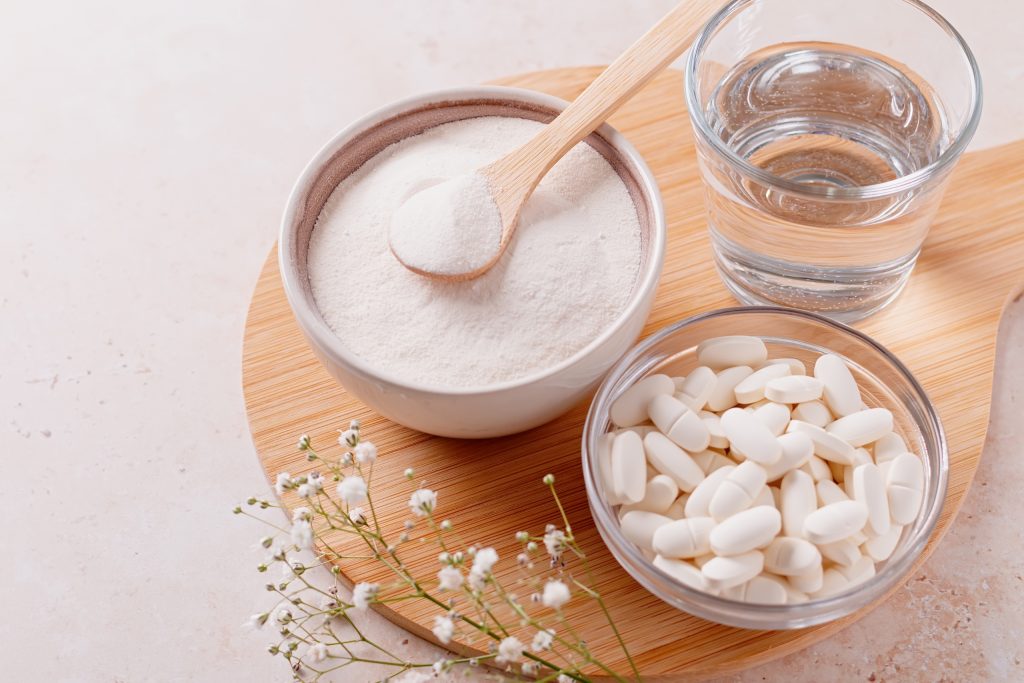
Conclusion
In conclusion, incorporating collagen-rich foods or supplements into your diet can be beneficial for overall health and well-being. Collagen is a vital protein that plays a crucial role in various aspects of our body, including skin, bone, joint, muscle, gut, hair, and nail health. By adding collagen to our diet, we can support these areas and promote their optimal functioning. However, it is important to consult with a healthcare professional before starting any new supplement regimen to ensure its safety and appropriateness for our individual needs. Additionally, while collagen supplementation can be beneficial, it should not replace a balanced diet, regular exercise, and good skincare habits. These factors all work together to support our overall health and maximize the benefits of collagen. By prioritizing a holistic approach to health, including collagen supplementation, we can enhance our well-being and enjoy the numerous benefits it offers.

